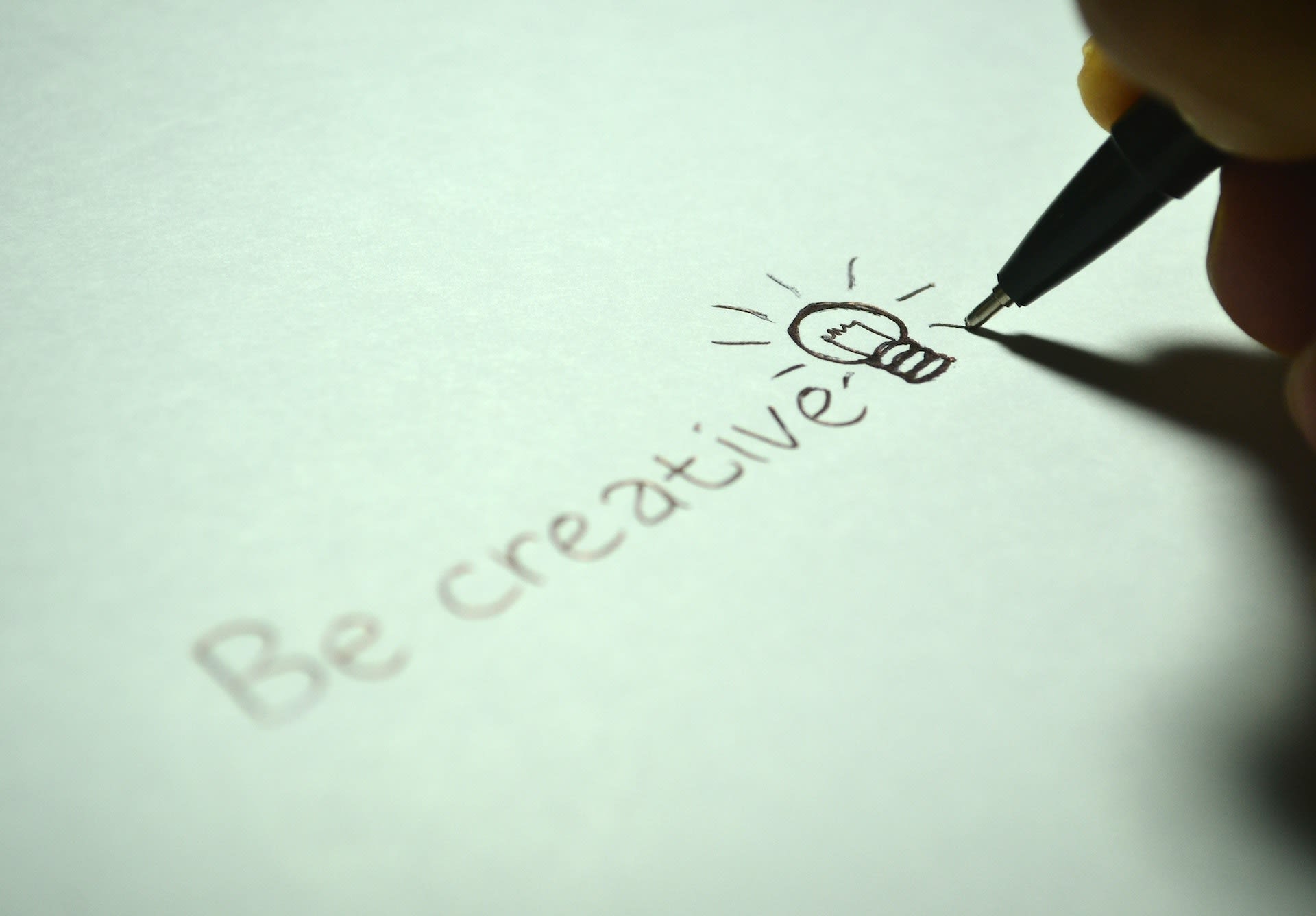The Ultimate Guide to Advertising Events: Strategies and Tips for 2023
Kyle
Co-founder @ AdVentur.ai

In today's fast-paced digital age, advertising events has become a crucial component of any successful event marketing strategy.
Events provide an excellent platform for businesses to showcase their products or services, connect with their target audience, and create brand awareness. However, to make the most of your time advertising events, you need a well-thought-out strategy.
In this ultimate guide🚀 , we'll delve deep into the world of advertising events, offering strategies and tips to help you plan, promote, and execute events that drive results.
What is Advertising Events?
Before we dive into strategies and tips, let's define what advertising events is. Advertising events is marketing activities specifically designed to promote a brand, product, or service to a targeted audience. These events can take various forms, such as trade shows, conferences, product launches, webinars, workshops, and more. The goal is to capture the attention of potential customers and leave a lasting impression.

Benefits of Advertising Events
Increased Brand Visibility
Advertising events offer a prime opportunity to boost your brand's visibility in front of a highly targeted audience. Here's a deeper look at this advantage:
Targeted Exposure
Unlike broad marketing efforts, advertising events allow you to showcase your brand to a specific, often pre-qualified group of attendees. These individuals are typically interested in the industry or topic related to your event, making it an ideal platform for targeted exposure.
Brand Recognition
By consistently presenting your brand, message, and values throughout the event, you reinforce brand recognition among attendees. When attendees encounter your brand at multiple touchpoints during the event, it becomes more memorable and recognizable.
Brand Recall
The immersive nature of events enhances "brand recall". Attendees engage with your brand in a real-world context, making it easier for them to recall your products or services when they encounter them later, whether online or offline.
Networking Amplification
As attendees network with each other during the event, they may discuss their experiences, including interactions with your brand. This word-of-mouth marketing further amplifies your brand's visibility and can lead to post-event discussions that extend your reach even further.
Lead Generation
Advertising events offer an excellent opportunity to generate leads, which are essential for building a valuable customer database. Here's how lead generation works at events:
Data Collection
During the registration process or interactions at the event, you can collect valuable attendee information, such as names, email addresses, job titles, and company details. This data forms the foundation of your lead database.
Engagement Opportunities
Events allow you to engage with attendees on a personal level. You can use this opportunity to gather insights into their needs, pain points, and preferences, which can inform your future marketing efforts.
Qualified Leads
Since event attendees are often self-selecting, they are more likely to be interested in your products or services. This means the leads you generate at events tend to be more qualified and valuable for your sales team.
Follow-Up
After the event, you can use the contact information you've collected to follow up with attendees. This post-event engagement can nurture leads into customers by providing them with further information, resources, or offers related to your offerings.
Networking Opportunities
Advertising events serve as powerful networking hubs, facilitating connections with industry professionals, potential partners, and customers. Here's why networking at events is invaluable:

Face-to-Face Interaction
Events provide the unique opportunity for face-to-face interactions, which can be more impactful than virtual or written communication. Building real connections can lead to stronger business relationships.
Knowledge Sharing
Networking at events allows you to share knowledge and insights with peers, learn from industry experts, and gain a deeper understanding of current trends and challenges in your field.
Collaborative Opportunities
Meeting other industry professionals and potential partners can open doors for collaborations, joint ventures, or strategic alliances. These partnerships can lead to mutual growth and business opportunities.
Customer Relationships
Engaging with customers at events can strengthen your relationships with them. Personal interactions can enhance customer loyalty and lead to repeat business.
Product or Service Showcase
Advertising events provide an ideal platform to showcase your products or services directly to your target audience. Here's why this showcase is advantageous:

Hands-On Experience
Attendees have the chance to experience your products or services firsthand. They can touch, feel, and interact with them, gaining a deeper understanding of their features and benefits.
Demonstration Opportunities
You can conduct live product demonstrations or workshops to showcase your offerings in action. This not only educates attendees but also highlights the unique selling points of your products or services.
Immediate Feedback
Feedback from attendees during the event can help you refine your offerings. You can gather insights on what resonates with your audience and make necessary improvements.
Lead to Sales
The engagement and interest generated during the event can lead directly to sales. Attendees who have a positive experience with your products or services may be inclined to make a purchase on the spot or shortly afterward.
Incorporating these elements effectively into your advertising events can maximize their impact on brand visibility, lead generation, networking opportunities, and product or service showcasing, ultimately driving success for your business.
Now that we understand the importance of advertising events, let's explore strategies and tips to make your events a resounding success.
Strategies for Successfully Advertising Events
Set Clear Objectives
Begin by defining your event's goals. Are you aiming for lead generation, brand awareness, product launch, or something else? Clear objectives will guide your planning and help you measure success.
Know Your Audience
Identify your target audience and tailor your event to their needs and preferences. Understanding your audience's pain points and interests will help you create relevant content and experiences.
Choose the Right Event Type
Select the event type that aligns with your objectives and audience. For instance, trade shows are excellent for industry networking, while webinars are great for thought leadership.
Plan Well in Advance
Start planning your event well in advance. This includes securing a venue, speakers, sponsors, and creating a detailed timeline. Early planning ensures you have ample time to promote the event effectively.
Create Engaging Content
Develop content that resonates with your audience. This can include informative presentations, interactive workshops, or engaging product demonstrations. High-quality content is key to keeping attendees interested.
Leverage Technology
Incorporate technology to enhance the event experience. Consider using event management software, virtual reality, or mobile apps to engage attendees and collect data.
Promote Across Channels
Use a multi-channel approach to promote your event. Utilize social media, email marketing, content marketing, and paid advertising to reach a wider audience.
Offer Incentives
Encourage attendance by offering incentives such as early bird discounts, exclusive access, or giveaways. Incentives can boost registration and attendance rates.
Build Partnerships
Collaborate with industry influencers, organizations, or sponsors to expand your event's reach. Partnerships can also provide additional resources and credibility.
Measure and Analyze
After the event, measure its success by evaluating key performance indicators (KPIs) such as attendance, lead generation, and attendee satisfaction. Use these insights to improve future events.
Tips for Effective Event Promotion
Craft a Compelling Event Title and Description
Your event's title and description should clearly convey its value and benefits. Use persuasive language to entice potential attendees.
Create a Landing Page
Design a dedicated landing page for your event on your website. Include event details, registration information, and a clear call-to-action (CTA). You can create a landing page with great tools like versoly.com.
Utilize Email Marketing
Send personalized email invitations to your subscribers and segmented lists. Use eye-catching visuals and compelling copy to encourage registration. I'd recommend using something like Mailchimp or Sendgrid
Leverage Social Media
Promote your event on social media platforms. Use event-specific hashtags and create engaging posts, stories, and videos to generate excitement. Use automated and AI solutions to speed up the process and save time. AdVentur.ai enables event marketers to automate their content creation process.
Collaborate with Influencers
Partner with influencers in your industry to promote your event. Their endorsement can significantly boost your event's credibility and reach.
Run Paid Advertising Campaigns
Invest in targeted paid advertising on platforms like Google Ads or Meta Ads to reach a broader audience. Set a budget and monitor ad performance closely.
Encourage Social Sharing
Make it easy for attendees to share event details on their social media channels. Consider running a social media contest to incentivize sharing. Share on all the platforms that your brand has a presence on. If you think its time consuming to create creative content for all platforms in their correct sizes, consider using AdVentur.ai to automate the entire process 🤷♂️
Budgeting and ROI Measurement
Budgeting for advertising events is essential for effective resource allocation. Here's how to approach it:
Determine Your Budget
Estimate all potential expenses, including venue rental, marketing materials, technology, and staff costs. Be thorough to avoid unexpected costs.
Allocate Resources Wisely
Allocate your budget based on your event objectives. For example, if lead generation is the goal, allocate more resources to registration and lead capture.
Track Expenses
Keep a detailed record of all expenses throughout the planning and execution phases. This will help you stay within budget.
Measure ROI
After the event, calculate your return on investment (ROI). Compare the value generated (e.g., revenue, leads, partnerships) to the total expenses. This analysis will inform future budget decisions.
Trends and Innovations in Advertising Events
Advertising events are continually evolving. Stay up-to-date with the latest trends and innovations to keep your events fresh and engaging:

Virtual and Hybrid Events
Virtual Events
Virtual events have gained prominence, especially in response to global events that restricted physical gatherings. These events take place entirely online, allowing for global participation without the limitations of physical locations. Key features include:
- Global Reach: Virtual events can attract attendees from all over the world, significantly expanding your potential audience and reach.
- Cost-Efficiency: Hosting virtual events often requires fewer resources compared to physical events. There are no venue rental or travel expenses.
- Interactive Features: Virtual events can incorporate interactive elements such as live chats, Q&A sessions, and breakout rooms for networking.
Hybrid Events
Hybrid events combine both physical and virtual components, providing flexibility and inclusivity. Attendees can choose to participate in person or virtually, giving them options that suit their preferences and circumstances. Advantages include:
- Inclusivity: Hybrid events allow you to reach a broader audience, accommodating those who prefer the convenience of virtual participation and those who value in-person experiences.
- Extended Reach: Attendees who cannot travel to a physical location can still engage with the event content and networking opportunities virtually.
- Data Insights: You can collect valuable data on attendee behavior and preferences in both physical and virtual spaces, enabling you to tailor future events effectively.
Data Analytics
Data analytics plays a crucial role in optimizing advertising events. Here's how it can benefit your event planning and execution:
- Attendee Insights: Analyzing attendee data can reveal valuable insights into their behavior, interests, and engagement levels during the event. This information helps you understand what worked well and what needs improvement.
- Personalization: Data-driven insights enable you to customize event experiences based on individual preferences. For example, you can suggest relevant sessions or content to attendees based on their past interactions.
- Performance Measurement: Data analytics allows you to track key performance indicators (KPIs) such as attendance rates, session popularity, and conversion rates. This data helps you assess the success of your event and make informed decisions for future events.
- Feedback Integration: Gathering feedback through surveys and post-event evaluations is essential. Analytics can help you aggregate and analyze this feedback to identify areas of improvement.
Sustainability
Sustainability has become a significant focus in event planning, reflecting growing environmental awareness. Here are some sustainable practices to consider:
Eco-Friendly Materials
Choose sustainable materials for event collateral, such as banners, brochures, and badges. Use recycled or biodegradable materials to reduce waste.
Carbon Offset Initiatives
Offset the carbon footprint of your event by investing in carbon offset projects, such as reforestation or renewable energy projects.
Reducing Single-Use Plastics
Eliminate or reduce single-use plastics by providing reusable water bottles, implementing recycling programs, and encouraging responsible waste management.
Digital Alternatives
Replace printed materials with digital versions, reducing the need for paper and printing resources.
Green Transportation
Encourage attendees to use eco-friendly transportation options and provide information on public transportation and carpooling.
Interactive Technology
Incorporating interactive technology into your events can enhance attendee engagement and create memorable experiences:
Virtual Reality (VR)
VR technology can transport attendees to immersive virtual environments. For instance, you can use VR to provide virtual venue tours or product demonstrations.
Augmented Reality (AR)
AR overlays digital information onto the real world. It can be used for interactive event maps, scavenger hunts, or enhancing product displays.
Gamification
Gamify your event to encourage participation and competition. Attendees can earn points or rewards for engaging with event content and activities.
Live Polling and Q&A
Use interactive platforms to allow attendees to ask questions, participate in live polls, and engage in real-time discussions with speakers and other attendees.
Personalization
Personalizing event content and experiences can significantly enhance attendee engagement and satisfaction:
Recommendation Engines
Implement recommendation algorithms that suggest sessions, workshops, or networking opportunities based on attendees' interests and past behavior.
Customized Agendas
Allow attendees to create personalized event agendas, selecting the sessions and activities most relevant to their goals.
Networking Matchmaking
Use AI-driven matchmaking algorithms to connect attendees with similar interests or objectives for networking opportunities.
Tailored Content
Segment your event content to address the specific needs and knowledge levels of different attendee groups.
By embracing these trends and innovations, you can stay at the forefront of event marketing and create memorable and impactful advertising events that resonate with your audience and deliver valuable outcomes.
Common Mistakes to Avoid
To ensure the success of your advertising events, steer clear of these common pitfalls:

Lack of Clear Objectives
Why it's a Mistake
Without well-defined objectives, your advertising event can become unfocused and lack a clear sense of purpose. This can lead to inefficient resource allocation and make it difficult to measure the event's success.
How to Avoid it
- Define specific, measurable, achievable, relevant, and time-bound (SMART) objectives for your event. For example, setting a goal to generate 200 leads or increase brand awareness by 20%.
- Ensure that your team and stakeholders have a shared understanding of these objectives.
Ignoring Your Audience
Why it's a Mistake
Neglecting to understand your target audience's needs, preferences, and pain points can result in an event that fails to resonate with attendees. This can lead to disinterest and low engagement.
How to Avoid it
- Conduct thorough audience research to create attendee personas. Understand their demographics, interests, challenges, and motivations.
- Tailor your event content, format, and experiences to address the specific needs and preferences of your target audience.
Inadequate Planning
Why it's a Mistake
Rushed or incomplete planning can lead to logistical issues, such as venue problems, scheduling conflicts, and resource shortages. These issues can negatively impact the attendee experience.
How to Avoid it
- Start planning well in advance to ensure that you have enough time to address all aspects of the event.
- Create a detailed event plan that includes timelines, responsibilities, and contingency plans for potential issues.
Underestimating Promotion
Why it's a Mistake
Even if your event is well-planned, inadequate promotion can result in low attendance. Without effective promotion, your target audience may not even be aware of the event.
How to Avoid it
- Develop a comprehensive promotion strategy that includes various marketing channels, such as social media, email marketing, content marketing, paid advertising, and partnerships.
- Start promoting the event early to build anticipation and generate interest.
Neglecting Post-Event Follow-Up
Why it's a Mistake
Neglecting to follow up with attendees after the event can result in missed opportunities for nurturing leads, gathering feedback, and building long-term relationships.
How to Avoid it
- Plan your post-event follow-up strategy in advance, including email sequences, surveys, and personalized outreach.
- Use attendee feedback to improve future events and tailor your communication to nurture leads and maintain engagement.
By addressing these common mistakes, you can significantly improve the chances of your advertising events being successful, well-received, and more likely to achieve their objectives. Effective planning, audience understanding, promotion, and post-event follow-up are essential components of a comprehensive event strategy.
Conclusion
Advertising events can be tricky. But, with powerful tools for boosting brand visibility, generating leads, and building valuable connection, you can smash it!
By implementing the strategies and tips outlined in this ultimate guide, you can plan, promote, and execute events that leave a lasting impact. Remember to set clear objectives, know your audience, leverage technology, and measure ROI to continually improve your event marketing efforts. Stay updated with industry trends and learn from successful case studies while avoiding common mistakes. With careful planning and execution, your advertising events can become a cornerstone of your marketing strategy, driving growth and success for your business.
Improve your ROI with stunning automated campaigns. Be part of the journey!
What kind of creatives can I craft using AdVentur.ai?
Elevate your social media presence across platforms like Facebook, Instagram, Twitter, and LinkedIn with our versatile image creation toolkit. Whether you're designing posts, stories, ads, or seeking inspiration for custom graphics, AdVentur.ai is your go-to digital artist.
How can I ensure my creatives resonate with my brand identity?
We use your brand colours and fonts to generate on-brand creatives for your social media accounts.
Is it possible to use bespoke fonts in my designs?
Absolutely! Infuse your brand's unique voice into every design by incorporating your custom fonts, ensuring consistency across all your communications and building greater trust with your followers.
How do you use AI with my brand identity?
After entering your brand details and identity, our AI is trained on this information to ensure your content resonates with your brand.
What if I need to cancel my subscription?
While we'd hate to see you go, you have complete control over your subscription. Cancel anytime directly from the app's subscription section with just a click.
Product
Free Tools
Copyright © 2020-2024 Social Image Ltd. Company number 12541817 All rights reserved. 27 Old Gloucester Street, London, WC1N 3AX, UK



